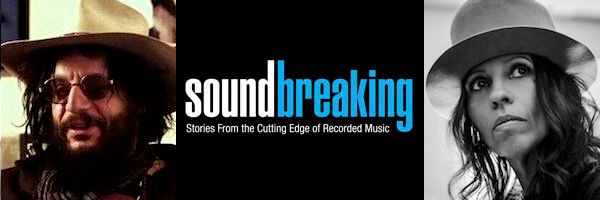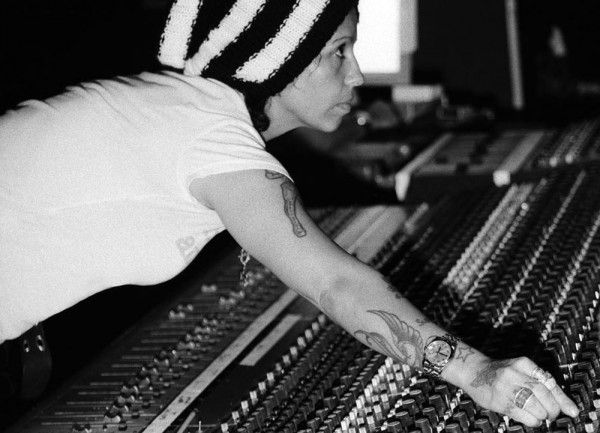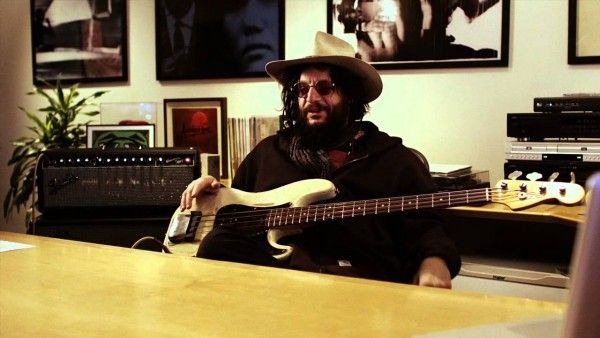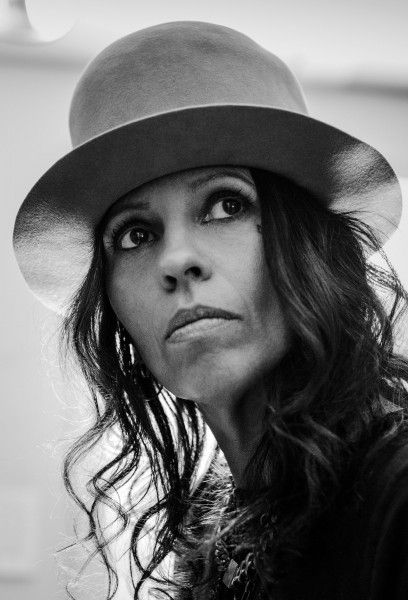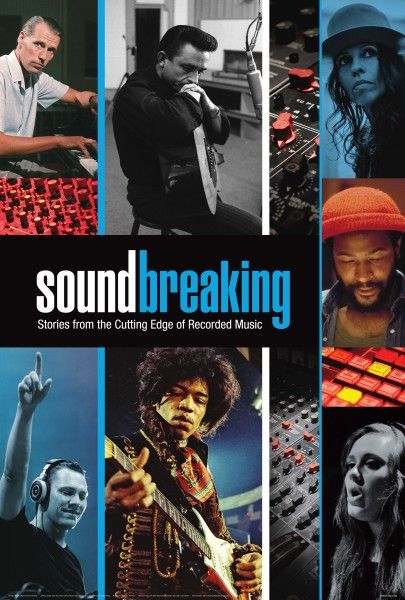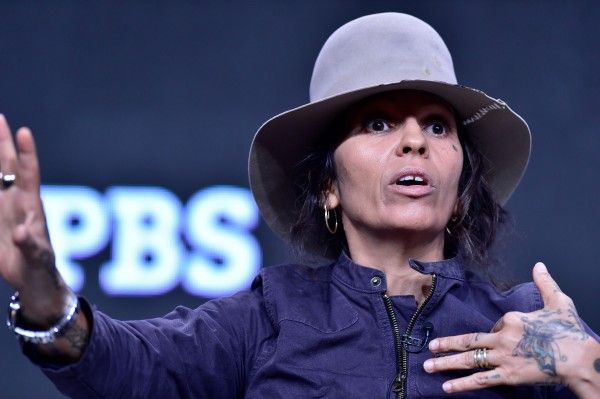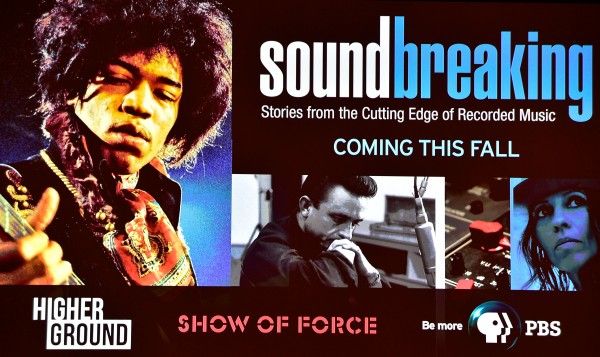Produced in association with the late Sir George Martin, PBS’ eight-hour docu-series Soundbreaking: Stories from the Cutting Edge of Recorded Music features more than 150 artists, including Paul McCartney, Joni Mitchell, Roger Waters, Roger Daltrey, Barry Gibb, Elton John, Debbie Harry, Quincy Jones, B.B. King, Annie Lennox, Tom Petty, Willie Nelson, Beck and RZA, sharing behind-the-scenes stories. The series combines unprecedented access with rare archival studio footage to deliver one of the most wide-ranging series on the art of music recording.
During this exclusive interview with Collider, Don Was and Linda Perry, both successful music producers and musicians who have worked with a wide array of talent, talked about how this documentary came about, what led them to get into music producing, why this is a comprehensive series that anyone can enjoy, pairing the right lyric with the right artist, the use of technology in the studio, and the hope that this will inspire the next generation of music producers.
Collider: How was this documentary brought to you?
DON WAS: It came through George Martin, and you would say yes to anything that he asked. Beyond that, knowing that he was involved, you knew the story was going to be well told and accurately depicted. It’s hard for me to verbally describe to you. That’s hard to do in a film. There are musicians who have made films about making music that are terrible and really wrong, but I had faith in George. Everyone did such a marvelous job. I was actually worried because I talked for two hours. What I always do in an interview is try to imagine the person I’m talking about is sitting in the room with me, so that I don’t say anything that I wouldn’t say, if they were sitting there. But, you forget that after about an hour. I was like, “What did I say in the second hour?!” You could destroy a relationship that way. But, it’s a very highbrow show. There’s no gossip and there’s no bullshit. It’s purely about the experience of making music, and I’ve never seen it laid out so eloquently before.
What led you to be a music producer?
WAS: I was in music school in 1970, at the University of Michigan, and that meant you either played in the symphony orchestra or you weren’t in music school. Now, they actually do have some pretty good programs that, at least, get you started. But, I always felt that it was never a choice. It was the only thing I wanted to do. I wanted to make records and play bass. There was never a Plan B. I had to make that work. My parents were both teachers, which is a noble profession, and they always said, “Just get teaching certification and have something to fall back on.” I fell many times, so if I had something to fall back on, that’s what I would be doing and I never would have gotten to pursue the thing I was meant to do. But, I never thought there was a choice in the matter.
LINDA PERRY: When I was in my band, I always was into the sound. When 4 Non Blondes made our first album, I didn’t like the sound of it. I kept asking the producer, “Why does my guitar sound so thin? I don’t like the sound of my voice. It sounds thin.” And I’d hear, “Can’t you just be a singer? Don’t worry about it. I’ve got it.” I heard that so many times that the next time we went in the studio, I was over the top about bossing it and pushing everybody around. I actually re-recorded “What’s Up?” I had no skill, whatsoever, but I just knew what I wanted to hear. It was my production that made it, but I didn’t get credited for it because I’m an artist. So, after that experience, I was always paying attention to sound. It isn’t something you think about doing, but I think controlling people gravitate towards production because you have control of the situation. You’re driving the ship, and you’re trying to make sure all the passengers on board are safe and happy. You’re going to this destination and it’s up to you to be a great tour guide. Leaders stumble into those kind of things. You can’t be a passive person. Maybe you can. I don’t know. But, every producer I know is not a passive person. You have to have confidence. You have to be strong-minded. You have to have creative ideas. You have to be able to feel the vision with the person and go, “Oh, I know what you’re trying to say!” It’s a ringleader. It’s a fascinating position to be in, and I never thought I’d be doing it, but it’s exactly where I should be.
Do you feel like this is a documentary for everyone, whether you know about the recording industry or you don’t?
WAS: It’s very comprehensive. Having been someone who’s been in recording studios for 40 years, I enjoyed it because it was a condensed continuum. You can see how things progress, but you also see the linkage. What we’re doing now, even with all of the technological advances, is not that different from what Frank Sinatra was doing in the 1950s, you’re just maybe painting with some different colors. If the emotional content is there, we’re all doing the same thing, and it’s cool to see it all tied together. I like that. It made me proud to be part of the continuum, and it actually inspired me. I felt rejuvenated and wanted to go record. I binge watched all eight episodes and it made me want to start working on songs again. For someone who loves music, but really hasn’t participated in the process of making records, I think there’s a tremendous amount of insight. It’s positive and it will make you appreciate the music you love, even more.
Don, as a bass player, you’ve worked with musicians that you’ve also played with. What’s that like?
WAS: One of the most incredible musicians I’ve ever worked with, played with or went to a concert to see is Iggy Pop. The Stooges played at my high school. I’m from Detroit, and they played at my high school in the ‘60s. I later ended up producing him and I’ve played live with him, a couple of times. There’s something that happens, right before he performs, where his bones start to change and his musculature is different. He turns into this 14-year-old kid and he unleashes an energy that is superhuman. One time, I experienced terror playing on stage with him because I’d never been that close to someone who was emitting that kind of intensity. It’s really something.
Linda, is it weird or surreal to hear other people cover “What’s Up?”
PERRY: I’m flattered when I see people that are just kids, who are singing it on Venice Blvd. or at karaoke. For me, to have had an impact with anything that you’ve done, whether it’s a painting, a photo, a poem, or something that you’ve created, just that experience is enormous. You don’t get that all the time. So, when people say, “One hit wonder,” I don’t get that. It’s such a great thing that you even got one shot. The majority of the world doesn’t get one. If you get one, that’s great. If you get two, awesome. To me, it’s just the impact of a song, and the fact that I wrote a song that people want to cover, whether it’s one person or a hundred, it’s pretty unbelievable.
When you have someone like Christina Aguilera in the recording studio and you put together a song like “Beautiful,” do you know then that it’s going to become what it’s become? Do you get a sense of that, when you pair the right lyric with the right artist?
PERRY: You do and you don’t. I’ve had many songs where I’ve gone, “Oh, my god, this song is going to be huge!,” but it wasn’t the right artist, or something just didn’t happen. It didn’t make the song any worse. It just didn’t line up. That does happen. With “What’s Up?,” I knew. We all knew. And “Beautiful,” I knew, but I thought it was more personal. I wasn’t sure if it was going to be a hit because it’s so personal. And then, when Christina sang it, I just thought it was a really great song for her, but I honestly didn’t know. It wasn’t a typical pop song. Sometimes you don’t know. But, I’m not really invested in knowing or in the why of it. I’m just invested in the moment, with what I’m doing. After that, god knows what’s going to happen.
Do you like working with artists that you see something inside of, that they don’t even necessarily see in themselves?
PERRY: Oh, yeah, it’s the better part of me. It’s what I’m best at. I’m really good at bringing out greatness, in anybody. I don’t even have to be in the studio. What a gift to be able to help people bring out the best qualities in them. I’m not saying that I’m a saint and I do that, all the time. I do definitely bring out bad qualities sometimes. But, I love that. I love touching on something that somebody didn’t even know existed in them, even if it only happens for two seconds. The shift that happens and that confidence is a beautiful thing.
Do you have to feel that in someone before you’ll work with them?
PERRY: I have to meet everybody I work with, before I work with them. Before I say yes, I have to meet them, and then I take it from there. I don’t care if you’ve had the best record or the worst. That doesn’t matter to me. I don’t care about that stuff. There have been so many movies that somebody said, “Don’t go see it,” and I went and saw it and was like, “Oh, my god, this is mind-blowing!” I don’t listen to that stuff. Opinion is a matter of whatever that state of mind was when someone wrote it or said it. For me, I just have to meet them, and I’ve gotta feel some sort of connection. It doesn’t mean we have to be best friends. Even if there’s a little tension, that could work. There’s just gotta be something. I’ve gotta see something going on. If there’s nothing going on, I pass on it.
People who really love music seem to have a turning point, where an album or a song really means something to them and starts them down a path to being obsessed with music. Did you have an album or song that did that for you?
PERRY: I’ve heard a lot of music and I’ve been touched by a lot, but for some reason, when “Another Brick in the Wall” came on the radio, it did something different to me than all the other songs. Mind you, I love The Beatles, I love Zeppelin, I love everything. But for some reason, something about that song – with the landscape, the soundscape and the visual it brought to my mind – it was unbelievable to hear that song on the radio. It was crazy! It was so out of nowhere. The production on it and the kid’s choir blew me away. I literally pulled over and cried. It was a moving experience for me. And then, I was just about Pink Floyd, 24/7. I think I was 16 when that happened, and it really did change me.
WAS: There are certainly artists that did that for me. In the mid-‘60s, Bob Dylan did that for me. Even surpassing the artistry of his lyrics, the beauty of the records, or his amazing vocals in that period, he was about running contrary to the mold. He was all about refusing to be restricted by the norms of society, which is just the stuff that a 14 or 15-year-old kid needs to hear. So, he was my hero for that, and I’m certainly not the only one. I think rock ‘n’ roll is about youthful rebellion. It’s about coming into your own, on your own terms, even people who can’t maintain their own terms because maybe they’ve got a family and five kids, and would like to be some wild motorcycle guy, but they’ve gotta feed somebody. I felt that about the Rolling Stones. They’re like your surrogate wild guys. You may have to go to work, every day, at something you don’t want to do, to take care of your loved ones, but you can go to a Stones concert and, as long as Keith [Richards] has got the cigarette hanging from his mouth and he’s hitting the power chords with his leopard pants, then there’s a part of you that’s doing that, that’s alive in you through him. That’s a very important role for musicians to play. The best musicians are aware of that and respect that, and help the audience with that.
Don, what’s it like to feel that way about Bob Dylan’s music, and then get to work with him? Was it a case of being afraid to meet your heroes?
WAS: I’ve worked with a bunch of my heroes, and I’ve never been disappointed. They’re extraordinary artists. Bob Dylan has written a couple thousand songs, and 600 or 700 of those are as good or better than anything that anybody else has ever written. Not five or ten of them, but 600 or 700 of them. I really believe that. That’s a superhuman accomplishment. If you ask him about it, he’ll just say that the songs came through him. He’ll say, “I didn’t write that song. I just remember moving the pencil over the paper.” The great ones will tell you that they don’t know where it comes from. They’re just the vessel for it. But everybody is not a vessel for it, so you have to admire the artistic accomplishment. If you get up in front of a stadium or an arena of people, and you make them feel like they’re having a one-on-one experience with you, that’s some crazy charisma shit. That’s not a craft that you can learn. That’s a crazy gift that you’re born with, to communicate on that kind of level. It indicates a personality that’s larger than life and that transcends the bones and the skin. Actually getting closer to these musicians that I’ve admired has only increased my admiration, respect and awe.
Linda, how do you feel about the use of technology in the studio?
PERRY: I don’t believe in auto-tune and I don’t believe in fixing people’s vocals because, to me, that’s nothing different than Milli Vanilli. When you have to auto-tune and fix 80% of someone’s vocal, you should get your Grammy taken away, just like Milli Vanilla did, because it’s not your voice anymore. That’s what I believe. That’s just lying. You don’t deserve that attention. And it makes me sad for Milli Vanilli. Those guys were embarrassed and stripped of things that they worked really hard for. They got those dance moves together. They did the tour. They did all of the press stuff. It’s just a different type of talent, just like half of the girls out there who dance and don’t sing, while they’re performing. That’s where I get a little jaded on the technology. Technology is fine. I have a field day with it. But when you are fixing 80% of someone’s voice, then there’s a problem. That’s not cool, at all.
What do you hope people take away from watching this?
PERRY: What I hope is that a lot of kids see this and that a new generation will pick up from here and be inspired to go, “You know what? I don’t want to make cookie cutter music. I want what that guy has. I want a song that lasts that long. I want to be in a documentary like this.” What I’m hoping is that kids will see this, and parents will see this and inspire their kids to watch this, or go buy them a record. There should be more shows made about music, and maybe MTV will start playing music again. Maybe the disc jockey will show back up. Maybe radio stations will have real live DJs who play and spin records. There’s a moment that happens with collaboration and with emotions. You have no idea what’s going to happen, but you’re going to put everything into it, and you’re going to really stretch your mind and imagination. I’m hoping that the generation today will stretch their imagination and go above and beyond where we are right now, musically. I’m not saying it’s all bad, but there’s some bad shit out there. There’s great stuff, but there’s some really bad stuff, clogging up the pipes. I hope this could help romanticize music.
Soundbreaking airs on PBS on November 21st, 22nd and 23rd.

